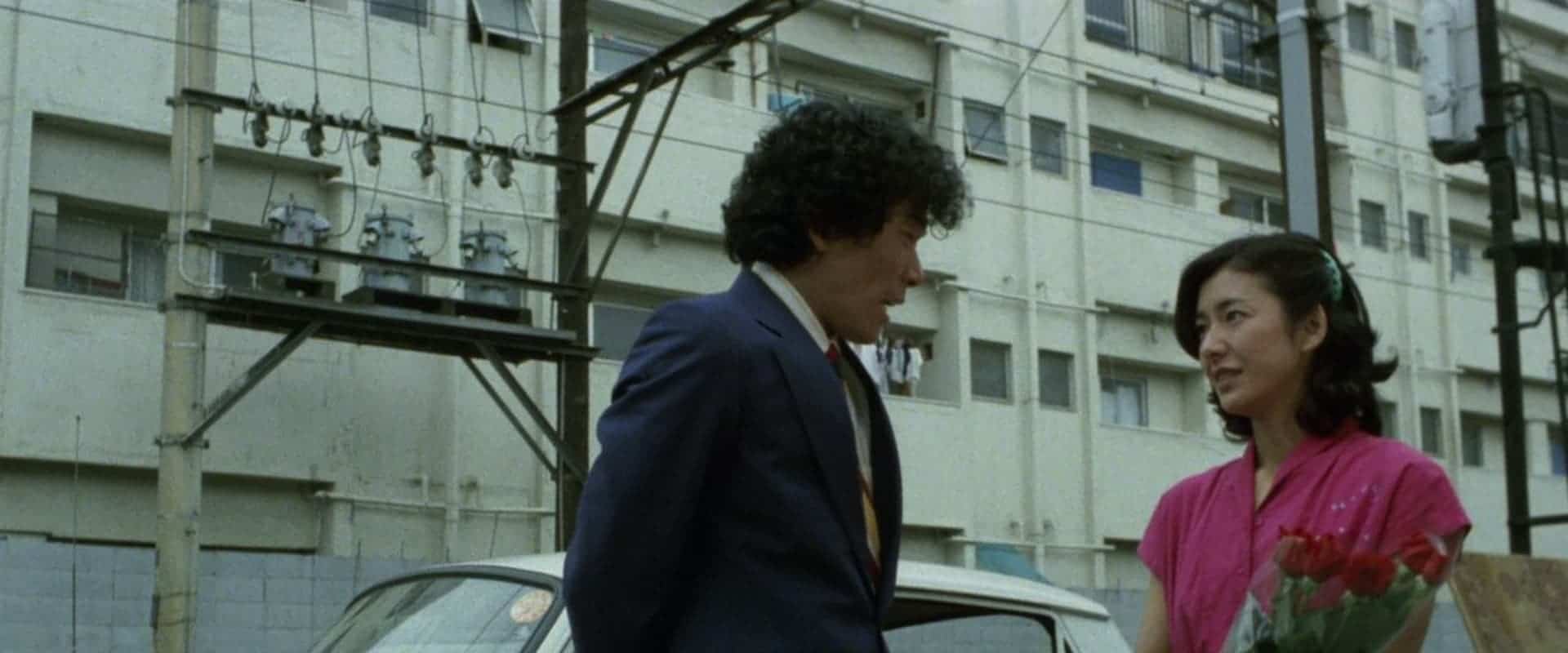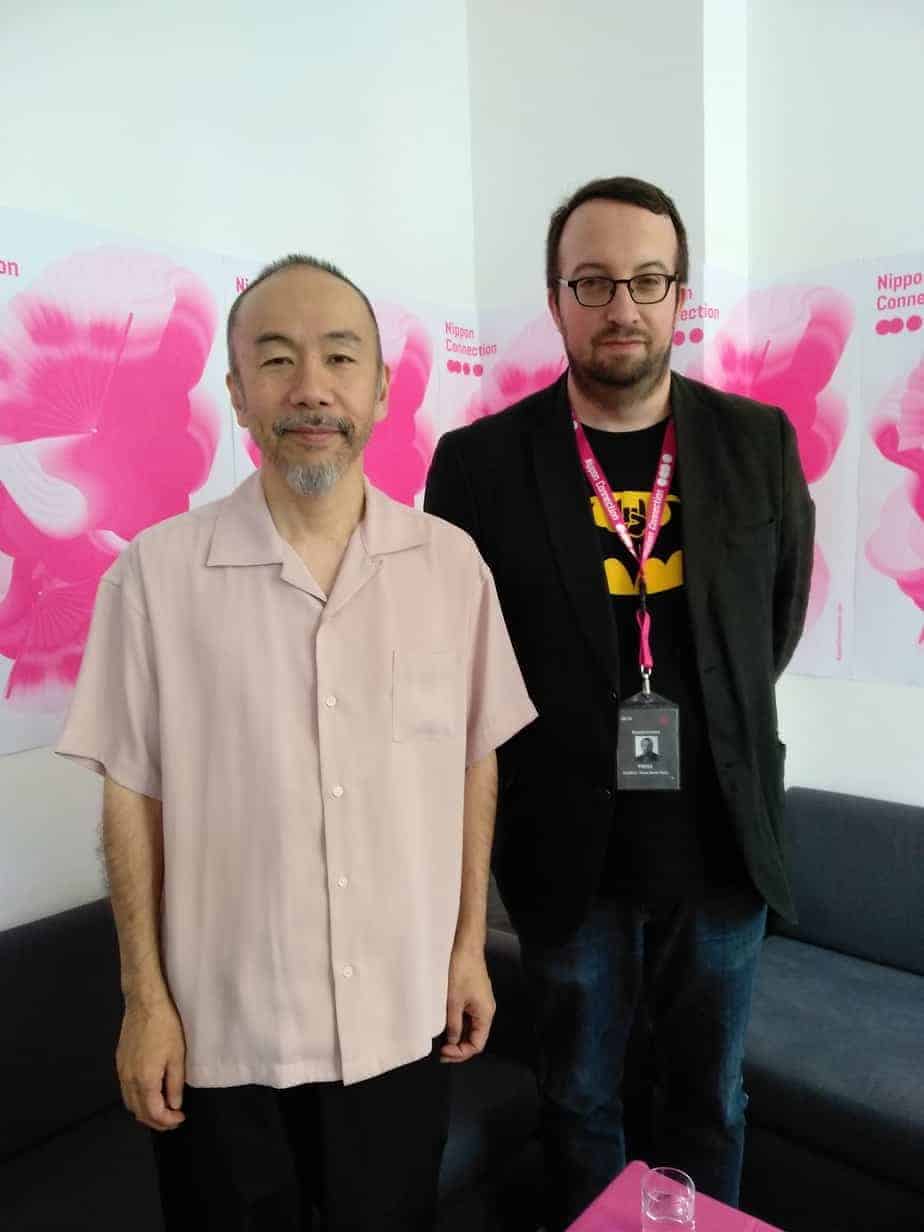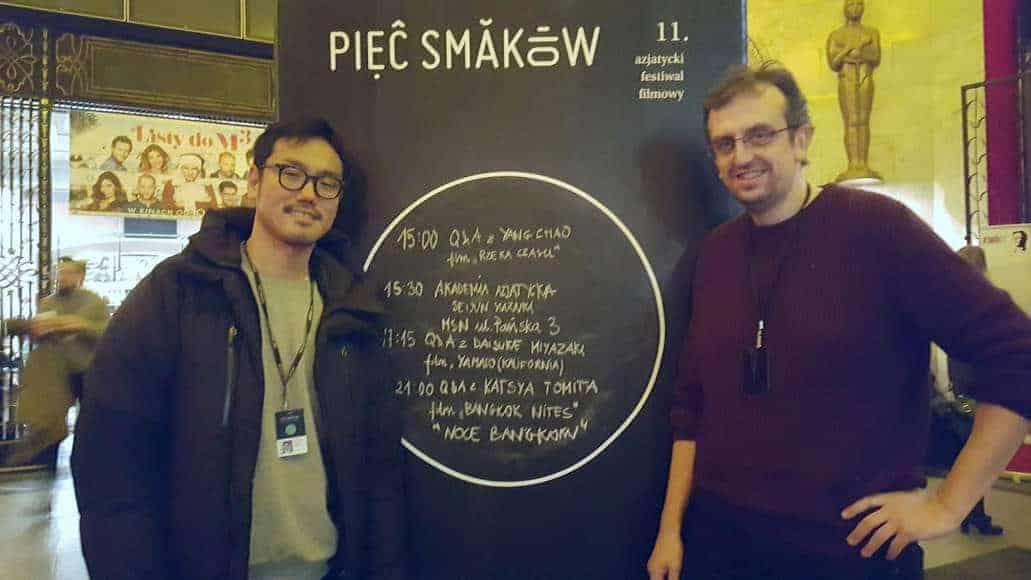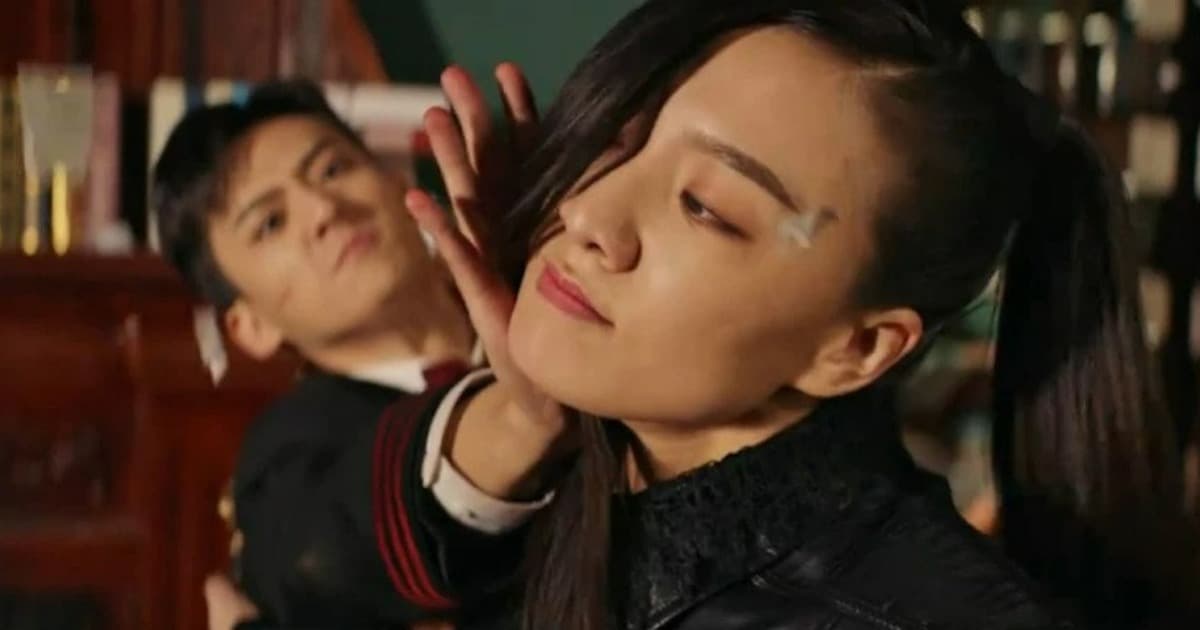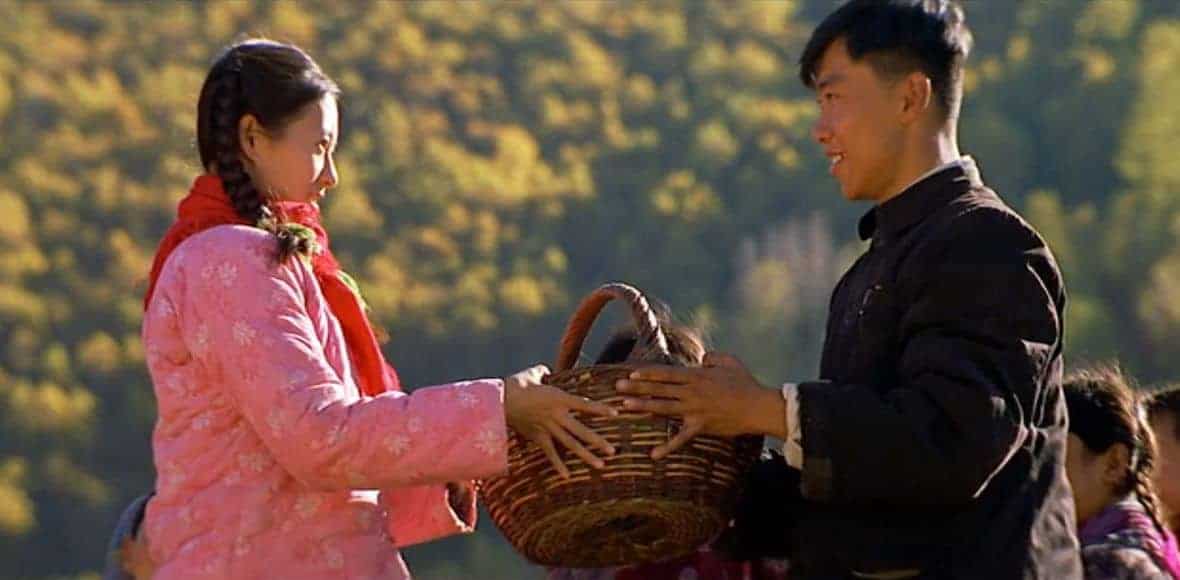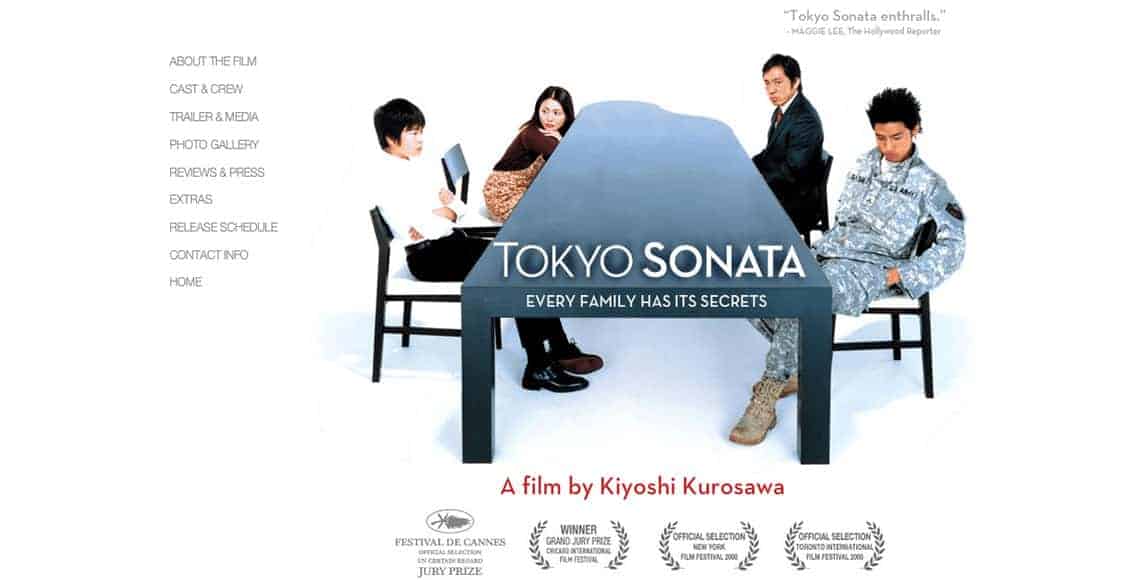Director Cédric Jouarie started out as a film critic and journalist for French television. Soon he also worked on short films experimenting with various genres, but also touching upon topics such as drug addiction and the loss of a child. He continued his work after he had moved to Taiwan in 2012, directing short films and short documentaries.
His first feature, “The Very Last Day”, is a very personal project to him. Inspired by his own experiences, this blend of psychological thriller and drama has been largely financed by Jouarie himself as well as through a crowdfunding campaign on Seed & Spark. The work and its director have received awards at the RAGFF 2018 in Venice.
We speak with him about his experiences directing “The Very Last Day”, his inspirations as a filmmaker and his future projects.
Congratulations on receiving the awards for best director and best drama at RAGFF 2018 in Venice. How do you feel about this success and how do you think will help you in the future?
My feeling about this success is somewhat bittersweet. Sweet, because of course I'm thrilled that the film and everybody's work on it was acknowledged by the official selection first, and then by the two awards at RAGFF. And I couldn't be happier that the film had its World Premiere in such an interesting and original festival, with more editions to come in other cities like Cairo and New York. But also bitter, because the film's first official selection came after nearly 30 rejections from festivals of all sizes and notoriety levels, so I was seriously starting to doubt myself and the film. I read somewhere that going into the film business and expecting not to meet rejection is like stepping on a boxing ring and expecting not to get punched in the face; and this is a very true comparison.
Nevertheless, all these rejections really put me down, because ‘The Very Last Day' is so very personal, it felt like the world was telling me that they don't give a damn about my work or what had happened to me. Of course, that was silly, but sometimes there comes a point where you are so fragile, you don't make much sense at all. So much so, when the selection from RAGFF came, I was in a place where I was considering re-cutting the movie entirely, having it in color from start to finish, and amputating some of its subplots in order to shorten it drastically. In retrospect, it would have probably been a mistake, so I'm just glad it didn't get to that. And then, a couple of weeks after RAGFF, we got selected at Diorama IFF in New Dehli, India, and I realized that the film will probably please a few and piss (or bore, or leave indifferent) a great many, and that's what I have to expect and be ready for. It's also a lesson for future films, I guess, if I get to make more.
“The Very Last Day” is your first feature film. How long did it take for you to get this project off the ground?
Forever and a half, or so it felt. But more accurately, it took about 10 years between writing the first draft and getting it done and ready for festivals. I had a shot at making it in France when I was still living there. I had three “name actresses/actors” attached to play the leads, I had an agent sending the film out to production companies. The feedback was constantly positive, praising the story and characters, but ultimately no one wanted to make it because it was just too bleak, violent, and hopeless. They saw it as a downer and all they were interested in at the time was to make comedies.
So, when I moved to Taiwan in 2012, I told my wife that I was giving myself another 3 years to try and make it “the conventional way,” and if by the time I turned 40 I still couldn't get it financed, then I'd sell the apartment it took me 15 years to pay for and self-finance my film that way. As things went, that time came, it took me about a year to sell the apartment, and as soon as the money was in my bank account, we started re-developing the project in Taiwan. We also raised an extra 10% of the budget through the indie crowdfunding platform Seed&Spark. It might not sound like much, but it really helped, and the community there is just extremely supportive, so I'm very grateful. The total budget is about NT$7.5 Million (a bit under US$250,000), except my wife and I didn't pay ourselves, so it's probably a bit more, but who's counting anyway.

In your statement on the film you mention the film being inspired by events which happened to you. Was it a tough film to write and direct considering this background?
It was extremely difficult to write the first draft. At first, I was trying to write in fiction form how my best friend's step father, a writer whom I then called my friend and mentor, used his power and influence to sexually assault me. But as much as I can kind of talk about this openly now (thanks to the film, actually––speak about creation therapy!), it proved too painful back then. So, what I did is, I took a step back, I compartmented all the elements of that story, I shuffled them around, I added more unrelated events of my life, and then I rearranged everything in a way that still made sense to me without feeling like I was pouring salt on an open wound anymore. Basically, what I really did is I played a mind trick on myself just to be able to get that story out, and it worked!
But that first draft was very raw: the characters were mono-dimensional, and the violence in it was way too gratuitous. And because writing really IS re-writing, I started honing this material over the next ten years and put it into the shape of what it is today. In a way, all the time it took to get the film made really helped the script. Directing it, however, wasn't so problematic because so much time had passed, I had finally come to terms with this dark page of my life's story.
Even though your film portrays the world of books and publishing, would you say many of the things your film shows and exposes could be just as easily transferred to the film industry?
Yes, but not only. Sadly, you could also transfer it to the world of sport competitions, modelling, ballet dancing, politics, so on and so forth. In the end, it's not a movie about this or that world, it's a film about how some so-called respectable people use their position to exert toxic, harmful, and destructive power over others. That works everywhere you can think of really.

I think, especially your female characters are very well-written and interesting. What was your approach when you and your wife wrote the characters of Viola and Melanie?
The characters' gender is secondary, because what they are at their core is different facets of me. What truly matters however, is what they've been through, and how it has affected them and made them who they are when the story starts. When we discussed this with Dan-Kee Chuang, my wife, co-writer and producer, we always agreed that there are no good guys and bad guys in the film. Of course, some of the things that are being done in the course of the film are highly reprehensible, and sometimes even deadly, but the characters who perpetrate those things do so without evil thoughts. They don't wake up one morning and go “I'm going to be bad now.” Everything they say or do makes sense to them in the context of who and where they are in their respective lives.
Now I'm not saying there is no evil in the world and we should forgive everyone for their wrongdoings. What I'm saying is that life, society, trials of all natures can sometimes damage people. It can sometimes turn good people bad. But no matter what that “bad” is, there is always a root to be found somewhere. Again, I'm not saying everything is forgivable, because it's not, but I do believe trying to understand others goes a long way. Punishment doesn't solve the root of any problem; understanding does as it actually helps with and allows prevention.
Raymond is a fascinating, yet a problematic character for many reasons. In your opinion, is he in denial or ignorant?
This is the film's main question: who is Raymond? Is he an arsehole? Is he a predator? Is he a rapist? Is he all of the above or none of that? So, if you'll allow me, I'm going to dodge that question as I really think this is one that should be answered by the audience themselves once they see the film.

How was the casting process for the film like?
Auditions, lots of them. Lack of money can result in many shortcomings in a movie, and our film is no exception. But one thing that bears no excuse is bad acting, because amazing actors are out there, all it takes is to actually go and look for them. For ‘The Very Last Day,' we auditioned over 200 people for 30-or-so speaking roles. Also, because I've lived in Taiwan for a few years already, and my wife and I have produced a few short films here, it felt natural to call some actors who trusted us before and offer them a role in our first feature film. All in all, I think the players, all of them, are the most incredible part of the film: they really delivered unique performances, no matter how big or small their parts were, and I really hope this film will put the spotlight on their incredible talent.
Can you give us some information about the location the film was shot? How was the shooting like? Any memorable episodes, good or bad?
Before we started shooting, I had a team who did about 2-3 months of location scouting, and whenever they had enough places to show me, we'd go and check those with my first A.D. and the D.P., sometimes with the set designer as well. I really owe them the look of the film, because the locations are really just as important as the actors. And just like you sometimes rewrite bits and parts of dialogues to better suit actors, roughly the same goes with locations: I rewrote some scenes to better match the sets that we found.
Originally, Melanie's little house was in the southern part of the island, but we couldn't afford to move the production there, so in the end, the whole film was shot in and around Taipei. There's a forest in the film, where the teenage girl runs and she ends up near a small temple: that forest was actually shot in three different locations that are all one-hour drive apart, and the temple was completely built by the art team, but in the film, it really looks like the real thing.
About a memorable episode, we shot the film climax at the very end of principal photography, but this winter was so cold that we even had snow, in Taiwan! So much so, we had to delay the last two shooting days, waiting for the snow to melt. When we came back to that key exterior location, it was still extremely cold, it was drizzling on and off, plus everywhere was covered with freezing cold mud. The actors had to put all their efforts into not shaking between action and cut, AND they still had to act. The mud made their movements slow and painful. The pain was literally apparent on their faces. They were dying. As for me, feeling warm under my three layers of coats, behind my monitor, all I could really think of was that everything was perfect for the movie and it all just looked amazing.

“The Very Last Day” also contains many switches in terms of style, for example, when it changes from black-and-white to color. Why did you choose this approach and how was your cooperation with Kuan-Yu Chen in that aspect?
The evolving colors and contrasts were in the script, so with Kuan-Yu Chen (my D.P.), Zed Wang (my 1st A.D.) and Sonia Lin (my script supervisor), we always knew in what color palette we were shooting at any given time. Because the film starts in black and white with low contrast, Kuan-Yu knew the kind of lights he should use, with a lot of flood and diffusion. But as the story progresses, and the film colorizes, the costume and art departments used more vibrant colors while the D.P. and gaffer used harsher lights. The reason for this is that I wanted to follow the male character's psyche, from his routine life (in black and white with low contrast) to the extreme position he finds himself when the story approaches its climax (hyper saturated colors and extreme contrast). I've also used warmer tones in the flashback scenes, because memories always tend to beautify the past, even when that past isn't so beautiful to begin with. In the end, the color evolution really involved all the creative heads in the film, not just the D.P. Sometimes, actors even asked me to remind them if we were in black and white or color when we were shooting this or that scene: it's probable they even adapted their acting according to the saturation level–yes, they are THAT good.
In general, do you have any filmmakers, which inspire you?
So many! I'm really a film buff, you know. I was a film buff, even before I knew I wanted to be a director at age 8! Movies offered me an escape back then, and they still do now. But to answer your question, I'd say Takashi Miike and Takeshi Kitano are big influences from Japan, Park Chan-Wook and Kim Ki-Duk from Korea, Dario Argento from Italy, John Carpenter from the U.S.A., Gaspar Noé from France, Fabrice Du Welz from Belgium… I should stop, this is ridiculous, I'm such a fanboy!
What are your plans for the future?
First of all, securing distribution in Taiwan. When you finish a script, you realize you have achieved very little because you still have to make the film; then once you've made the film, you realize you have achieved very little because you still have to distribute it and hopefully show it to the world. In terms of projects, there is this Rocky-like drama about Muay Thai that I'd love to shoot in English in Thailand, in which Chris O-Down would play the lead––but he doesn't know it yet. There is also a psychological drama about what drives some people to mass killing I'd like to make, but with elements of body horror, a la David Cronenberg. Maybe this will be my next one, I could do it on a smaller budget than ‘The Very Last Day', the only problem is I don't have another apartment to sell!



